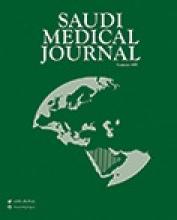12 OCTOBER 2020 - People who have recovered from COVID-19 develop natural defences to the disease in their blood (antibodies). Antibodies are found in part of the blood called plasma. Plasma from blood donated from recovered patients, which contains COVID-19 antibodies, can be used to make two preparations. Firstly, convalescent plasma, which is plasma that contains these antibodies. Secondly, hyperimmune immunoglobulin, which is more concentrated, and therefore contains more antibodies.
Convalescent plasma and hyperimmune immunoglobulin have been used successfully to treat other respiratory viruses. These treatments (given by a drip or injection) are generally well-tolerated, but unwanted effects can occur.
The review authors wanted to know whether plasma from people who have recovered from COVID-19 is an effective treatment for people with COVID-19, and whether this treatment causes any unwanted effects.
The authors searched major medical databases for clinical studies on treatment with convalescent plasma or hyperimmune immunoglobulin for people with COVID-19. Studies could be conducted anywhere in the world and include participants of any age, gender or ethnicity, with mild, moderate or severe COVID-19.
This is the first living update of this review. This review includes 19 completed studies, with 38,081 participants who received convalescent plasma.
Certainty (confidence) in the evidence is very limited because there were only two randomised studies and most studies did not use reliable methods to measure their results. Furthermore, participants received various treatments alongside convalescent plasma, and some had underlying health problems.
The authors are uncertain whether plasma from people who have recovered from COVID-19 is an effective treatment for people hospitalised with COVID-19. These findings could be related to the natural progression of disease, other treatments or to convalescent plasma. Our searches found 138 ongoing studies, of which 73 are randomised. This is the second update of this review.
Lead author, Sarah Valk from the Center for Clinical Transfusion Research at Sanquin Blood Supply in the Netherlands, says: “In summary, we remain very uncertain about the effectiveness and safety of using convalescent plasma for people with COVID-19. We are very uncertain whether or not convalescent plasma affects the number of serious harms. These findings could be related to the natural progression of the disease, other treatments that the participants received, or to convalescent plasma.”
“However, this field is changing rapidly. We identified approximately 98 ongoing studies, of which 50 are randomized trials. This the first living update of our review, and we will continue to updating this review periodically, as a ‘living systematic review’, so that it reflects the most current, available evidence.”
Full citation: Lise J Estcourt, Haematology/Transfusion Medicine, NHS Blood and Transplant, Oxford, UK. lise.estcourt{at}nhsbt.nhs.uk/lise.estcourt{at}ndcls.ox.ac.uk
DOI: https://doi.org/10.1002/14651858.CD013600.pub3
Copyright © 2020 The Cochrane Collaboration. Published by John Wiley & Sons, Ltd., reproduced with permission.
- Copyright: © Saudi Medical Journal
This is an open-access article distributed under the terms of the Creative Commons Attribution-Noncommercial-Share Alike 3.0 Unported, which permits unrestricted use, distribution, and reproduction in any medium, provided the original work is properly cited.






